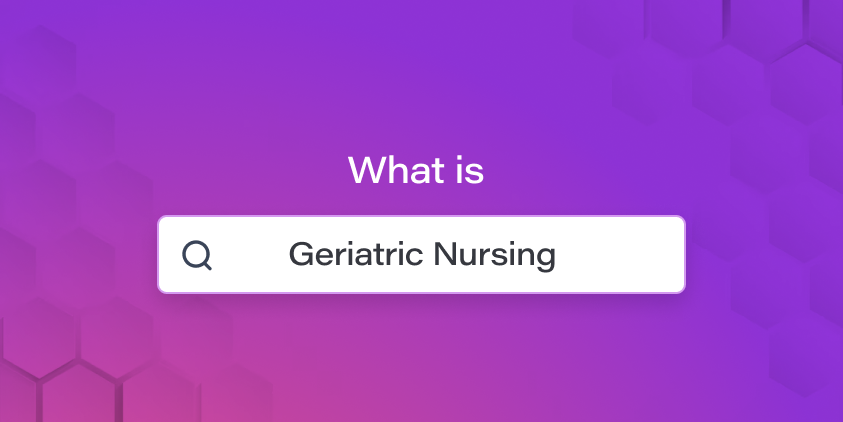A Comprehensive Guide to Geriatric Nursing
This article was written in collaboration with Christine T. and ChatGPT, our little helper developed by OpenAI.

Definition
Geriatric nursing, also known as gerontological nursing, involves caring for older adults. This specialty addresses the physiological, developmental, psychological, socio-economic, cultural, and spiritual needs of aging individuals.
Related Terms
- Gerontology: The study of aging and the problems faced by older adults.
- Geriatric Assessment: A multidimensional and usually interdisciplinary diagnostic instrument designed to collect data on the medical, psychosocial, and functional capabilities and constraints of elderly patients.
- Long-Term Care: A variety of services that help meet both the medical and non-medical needs of people with a chronic illness or disability who cannot care for themselves for long periods of time.
Synonyms, Definitions, and Examples
| Synonyms | Definitions | Examples |
|---|---|---|
| Gerontological Nursing | Nursing care that is aimed to meet the special needs of older adults. | A geriatric nurse helping an elderly patient with mobility exercises to improve strength and balance. |
| Senior Care Nursing | The field of nursing concerned with providing health care to the elderly population. | A senior care nurse assisting a patient with medication management in a long-term care facility. |
| Elderly Care Nursing | The provision of medical care to elderly people, involving the treatment of diseases and injuries, and maintaining health and physical and mental abilities. | An elderly care nurse providing dementia care in a memory care unit. |
Assessment Techniques and Tools
Assessment in geriatric nursing often involves multidimensional functional assessments, cognitive assessments, and depression screenings. Some commonly used tools include the Geriatric Depression Scale (GDS), Mini-Mental State Examination (MMSE), and Katz Index of Independence in Activities of Daily Living.
Assessment Frameworks
Comprehensive geriatric assessment frameworks involve interdisciplinary, diagnostic processes to determine the medical, psychological, and functional capabilities of an older adult. The primary aim is to develop a coordinated and integrated plan for treatment and long-term follow-up.
Assessment Documentation
Documentation in geriatric nursing is crucial for recording patient’s baseline status, monitoring changes, and communicating with the healthcare team. This includes documenting physical assessments, changes in mental status, medication administration, and responses to treatments.
Legal and Ethical Considerations
In geriatric nursing, important ethical considerations include patient autonomy, dignity, and the balance between beneficence and non-maleficence. Legal considerations include informed consent, mandatory reporting of abuse, and understanding the legal aspects of end-of-life decisions.
Real-Life Examples or Case Studies
Case Study 1: A geriatric nurse working in a long-term care facility implemented a personalized exercise program for a group of residents, which led to improved mobility and decreased falls.
Case Study 2: A gerontological nurse practitioner in a community clinic successfully managed the medications of older adults with multiple chronic conditions, leading to improved health outcomes and quality of life.
Resources and References
- The Gerontological Society of America
- National Institute on Aging
- Book: “Gerontological Nursing” by Patricia A. Tabloski
Conclusion
Geriatric nursing is a rewarding and rapidly growing field due to the aging population. This specialty not only provides care for the physical health of older adults but also addresses psychological, social, and spiritual aspects. A career in geriatric nursing offers opportunities to make a significant impact on the quality of life of older adults.
